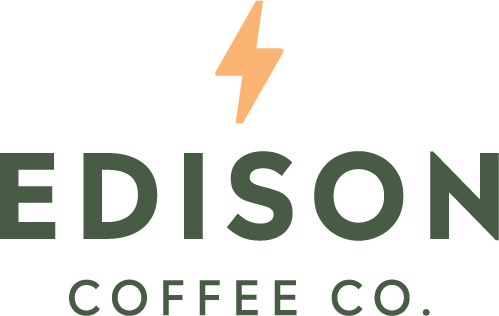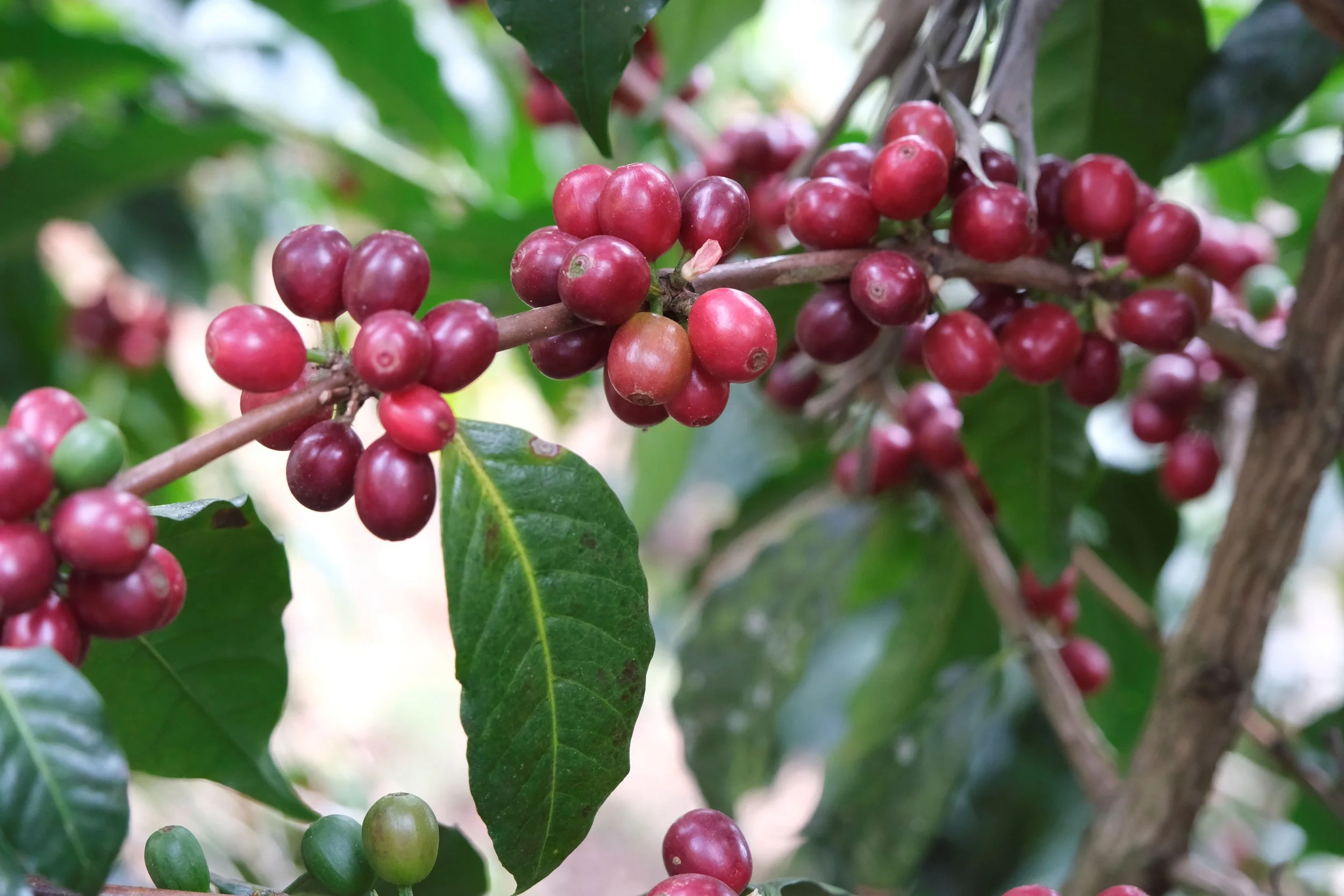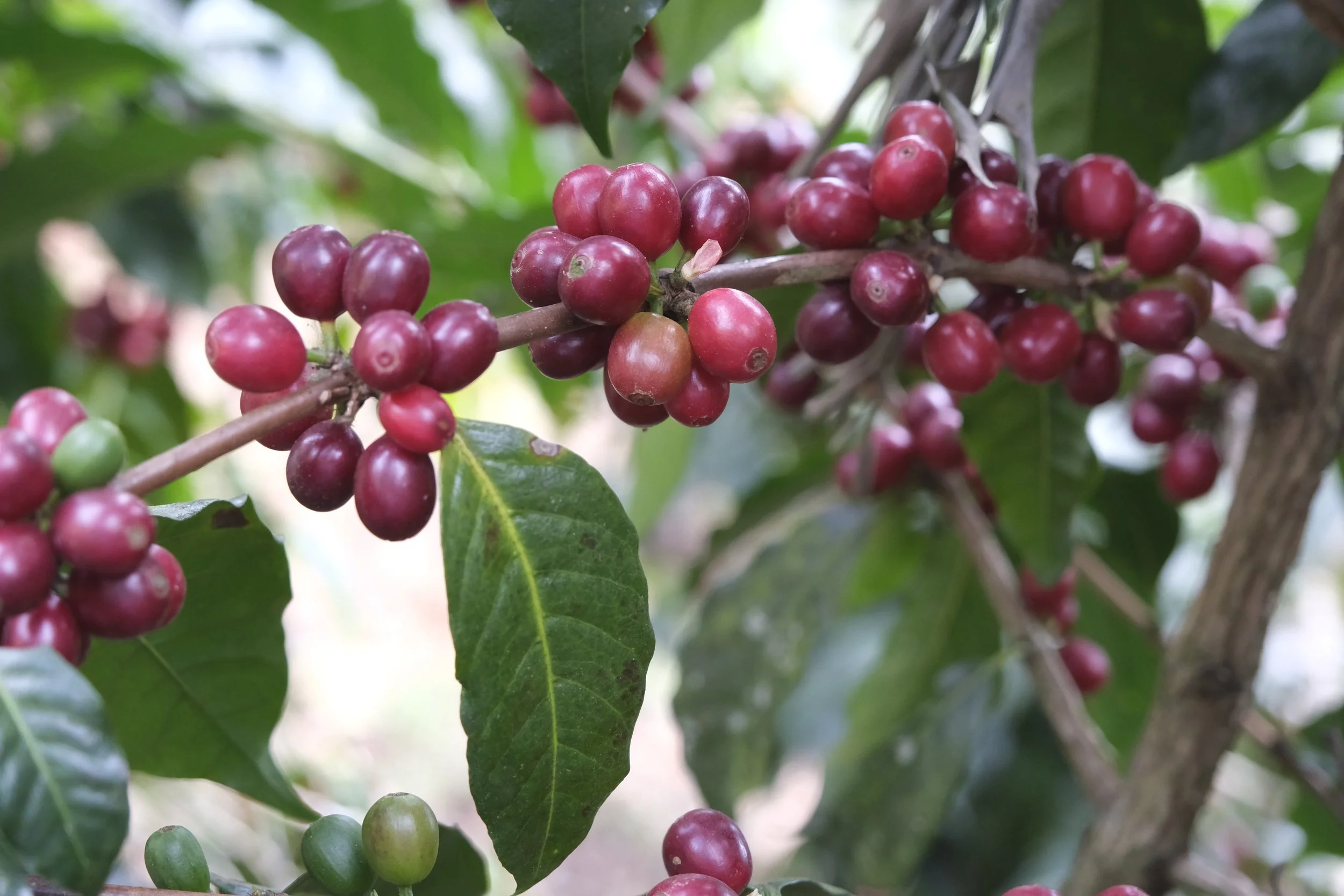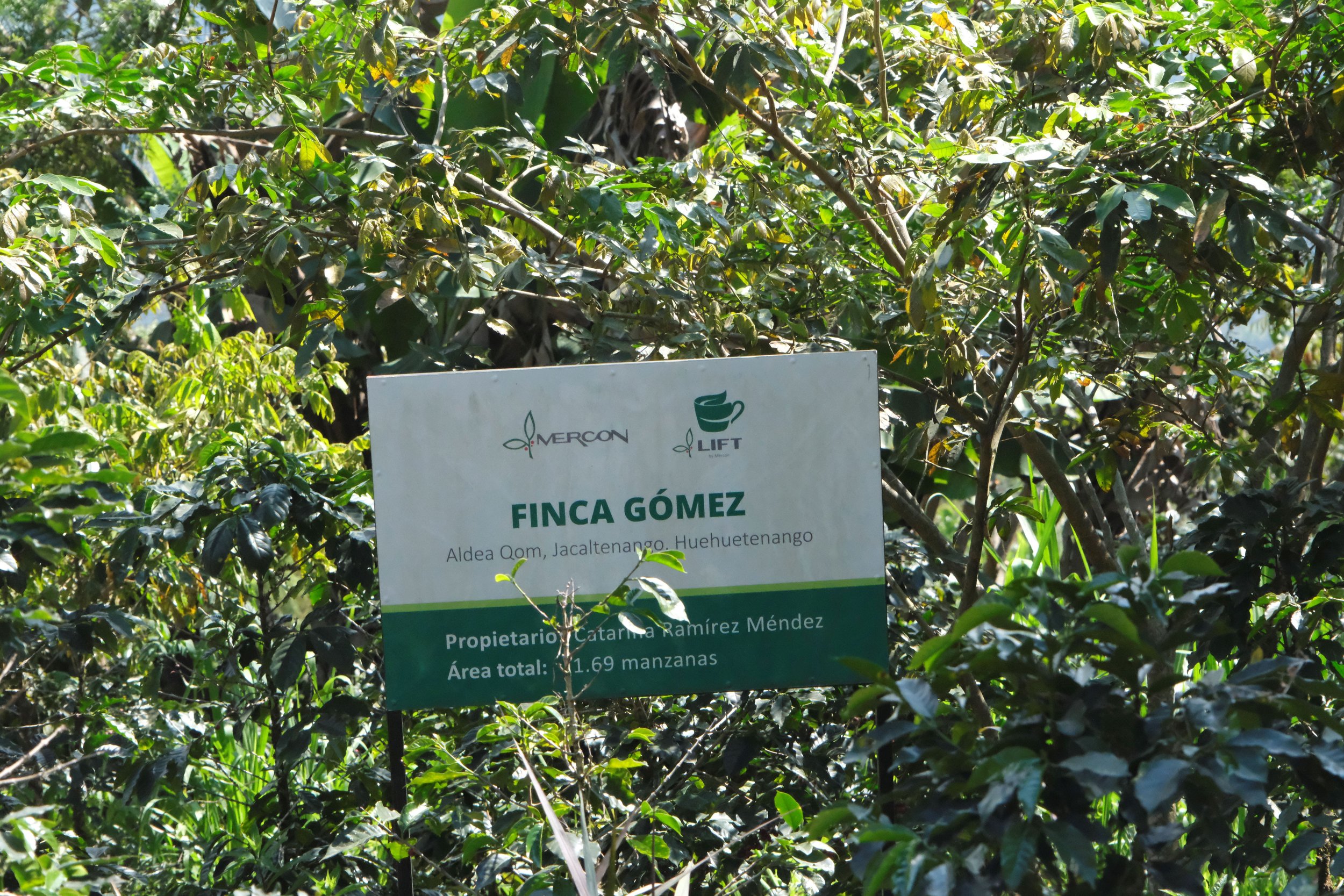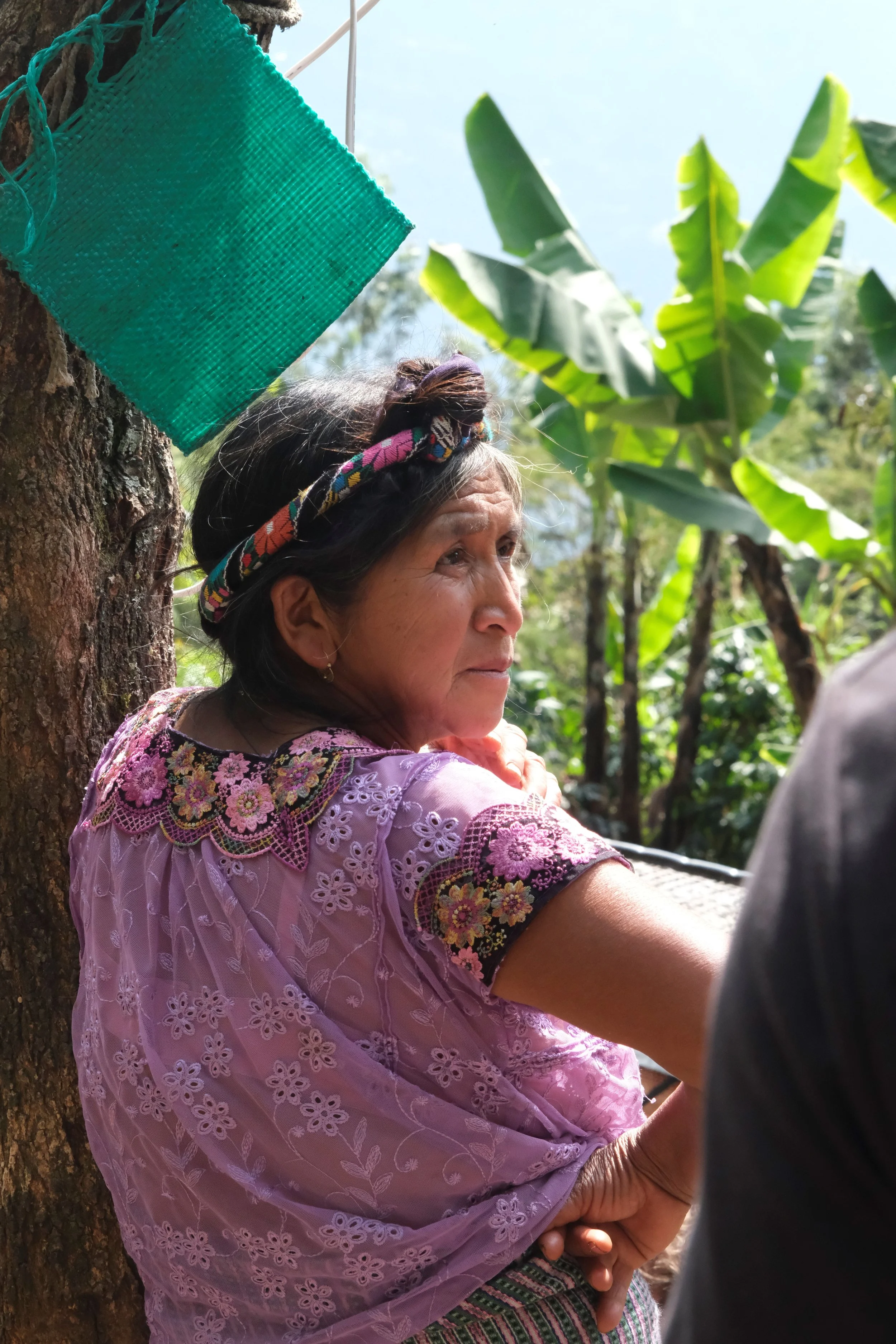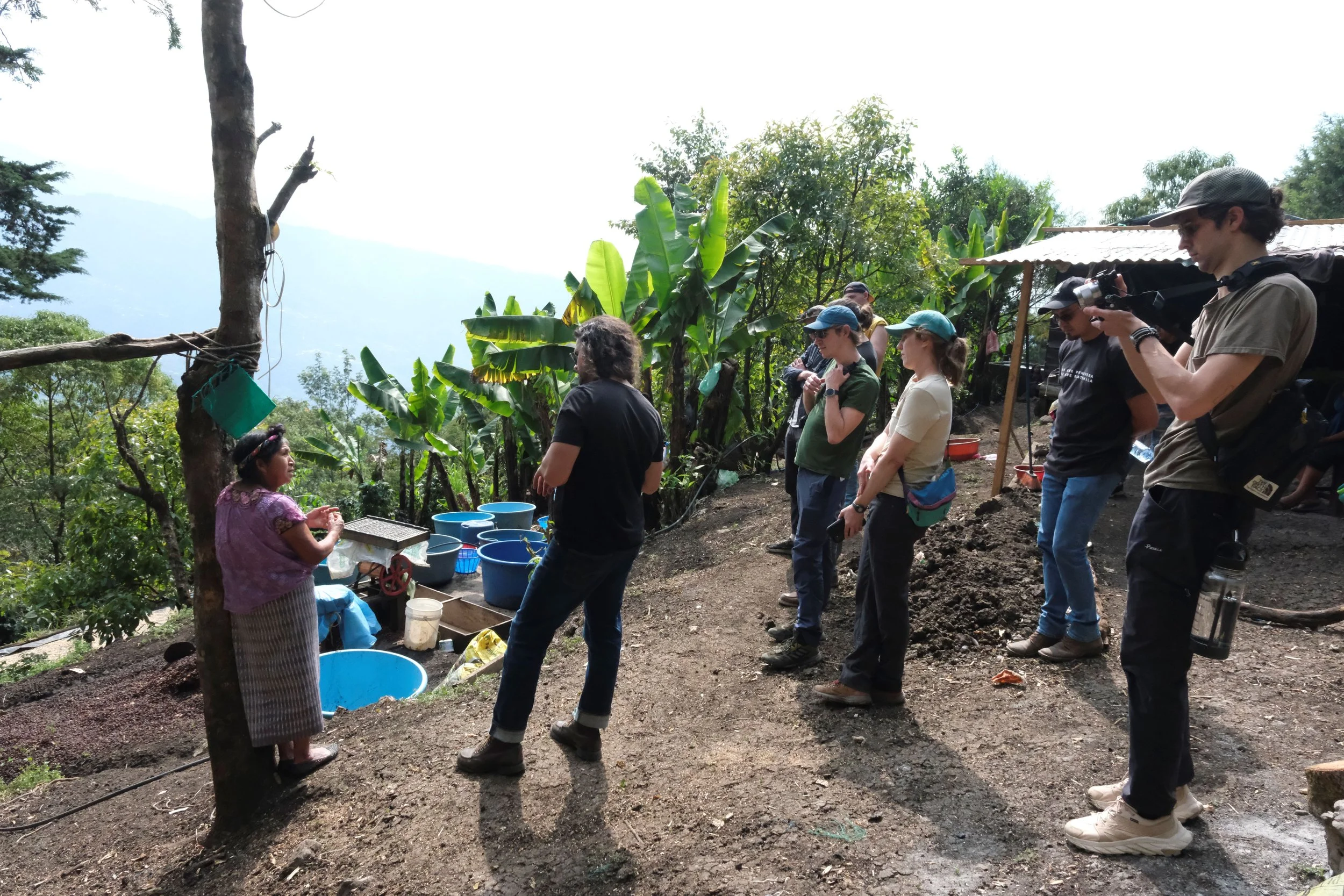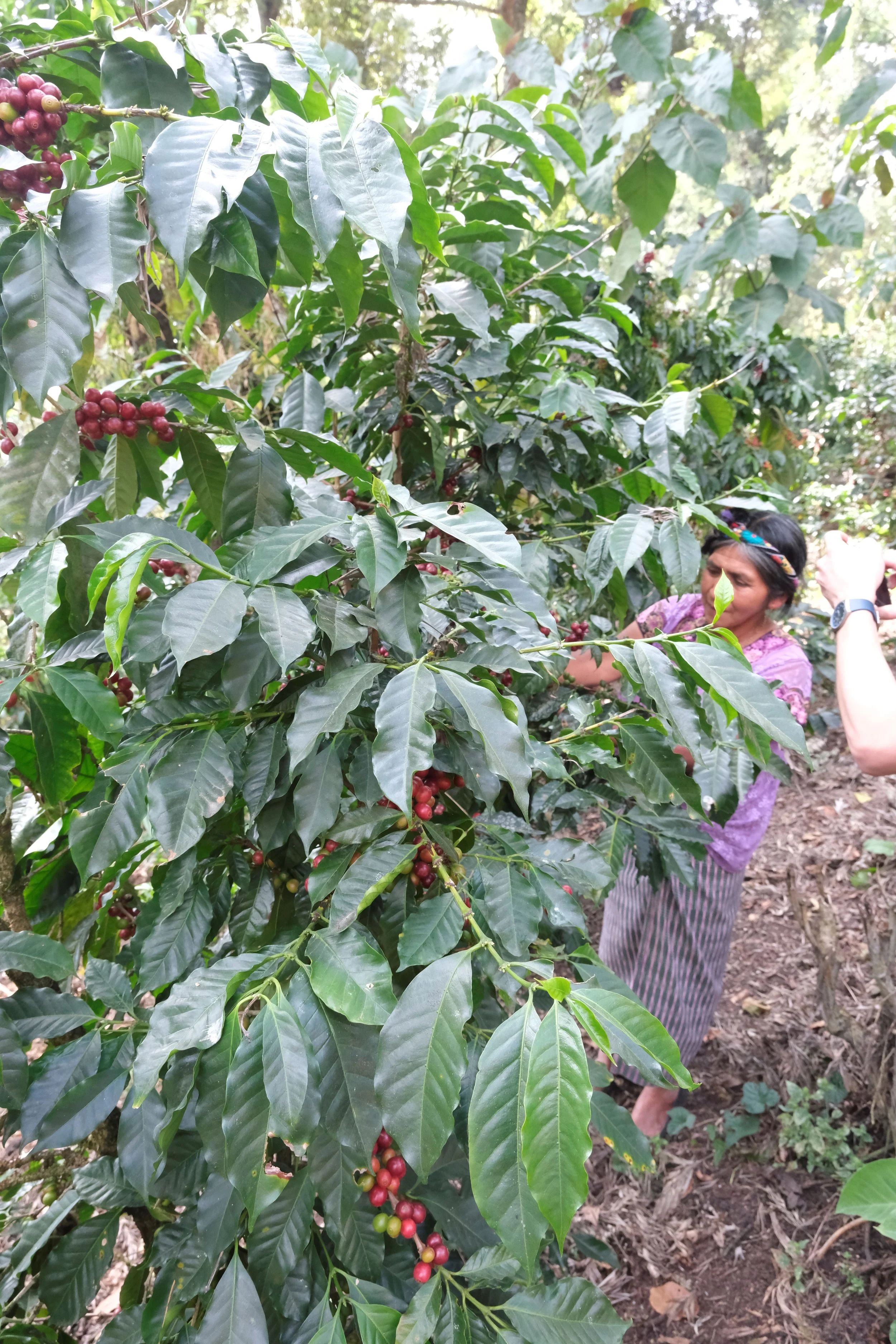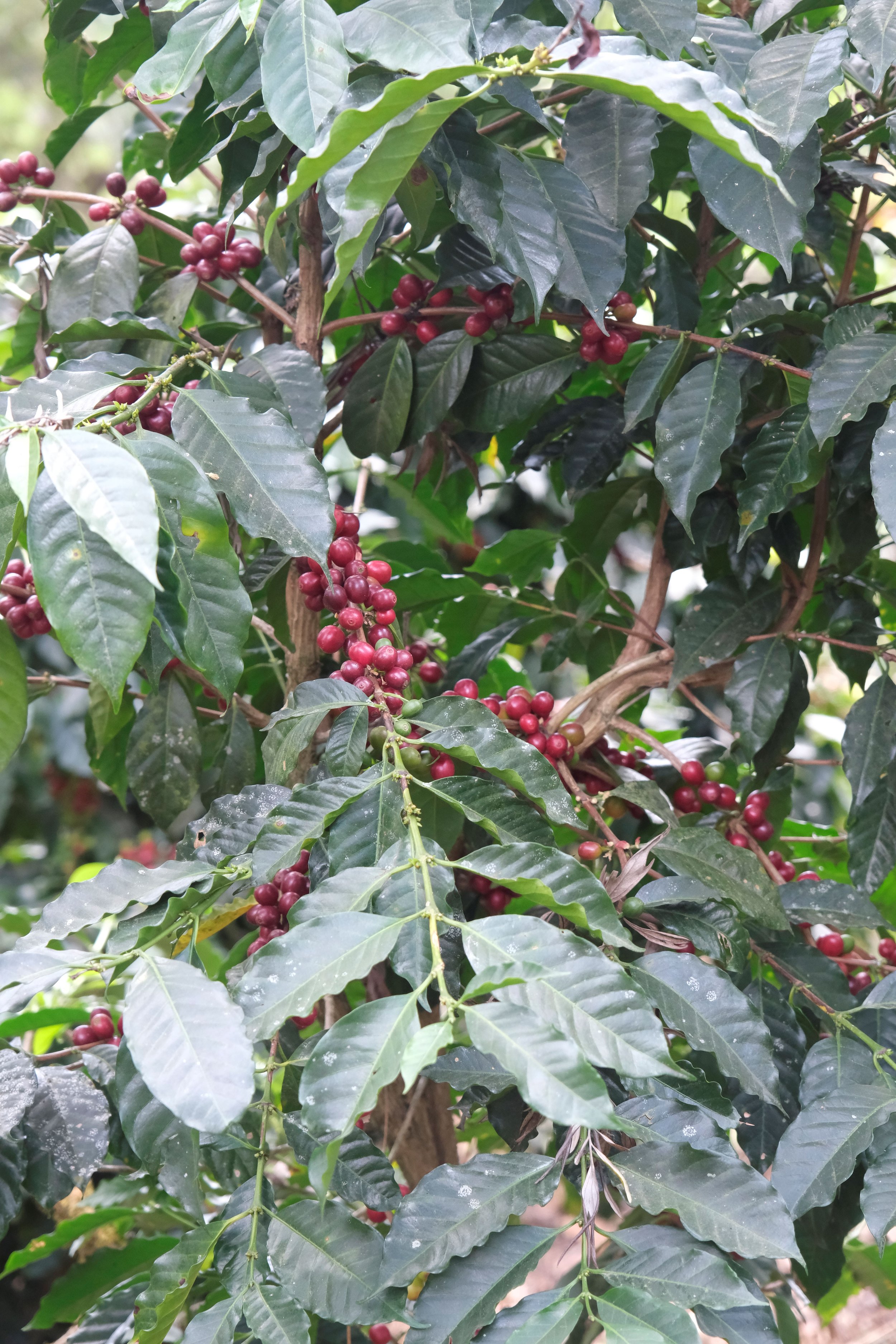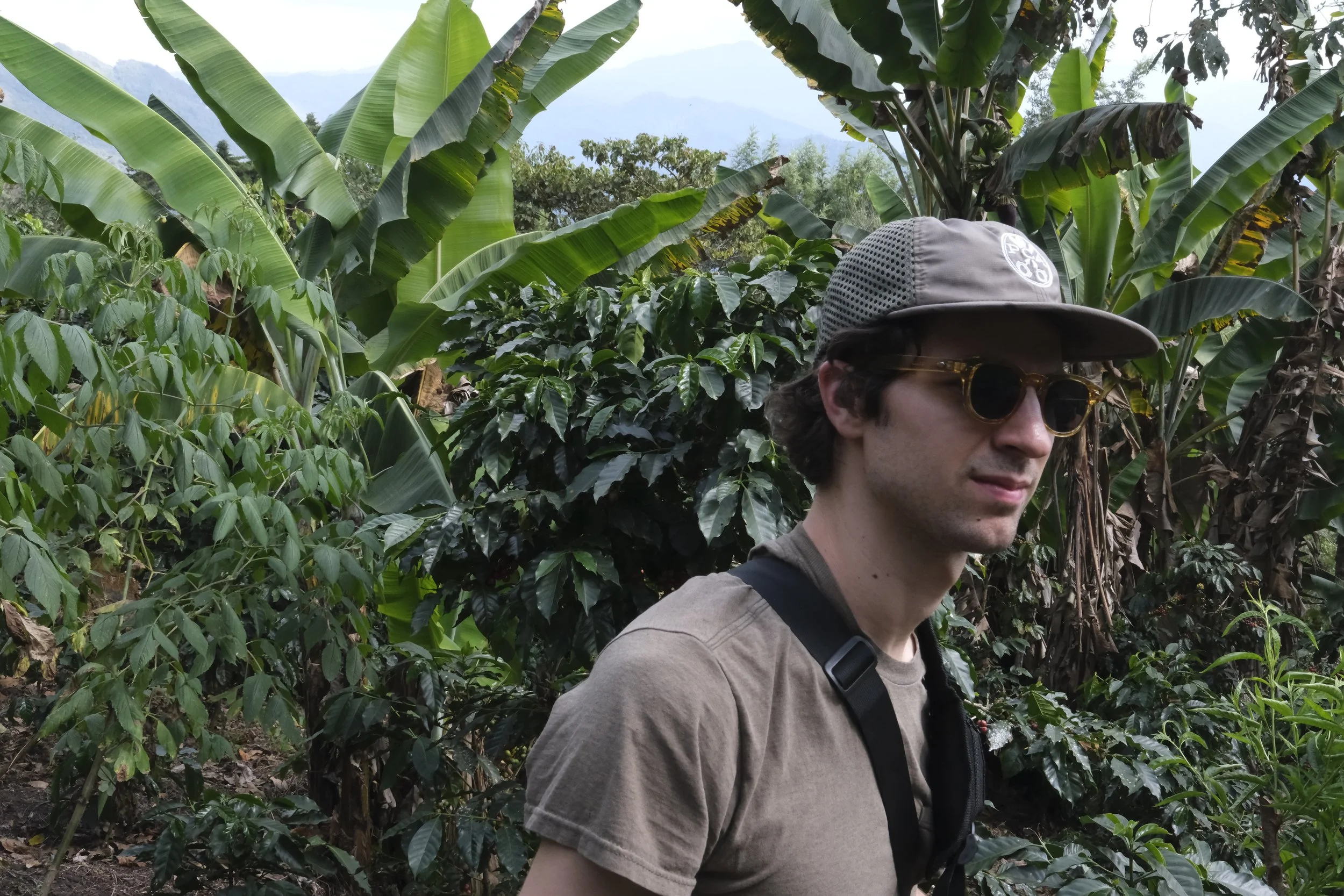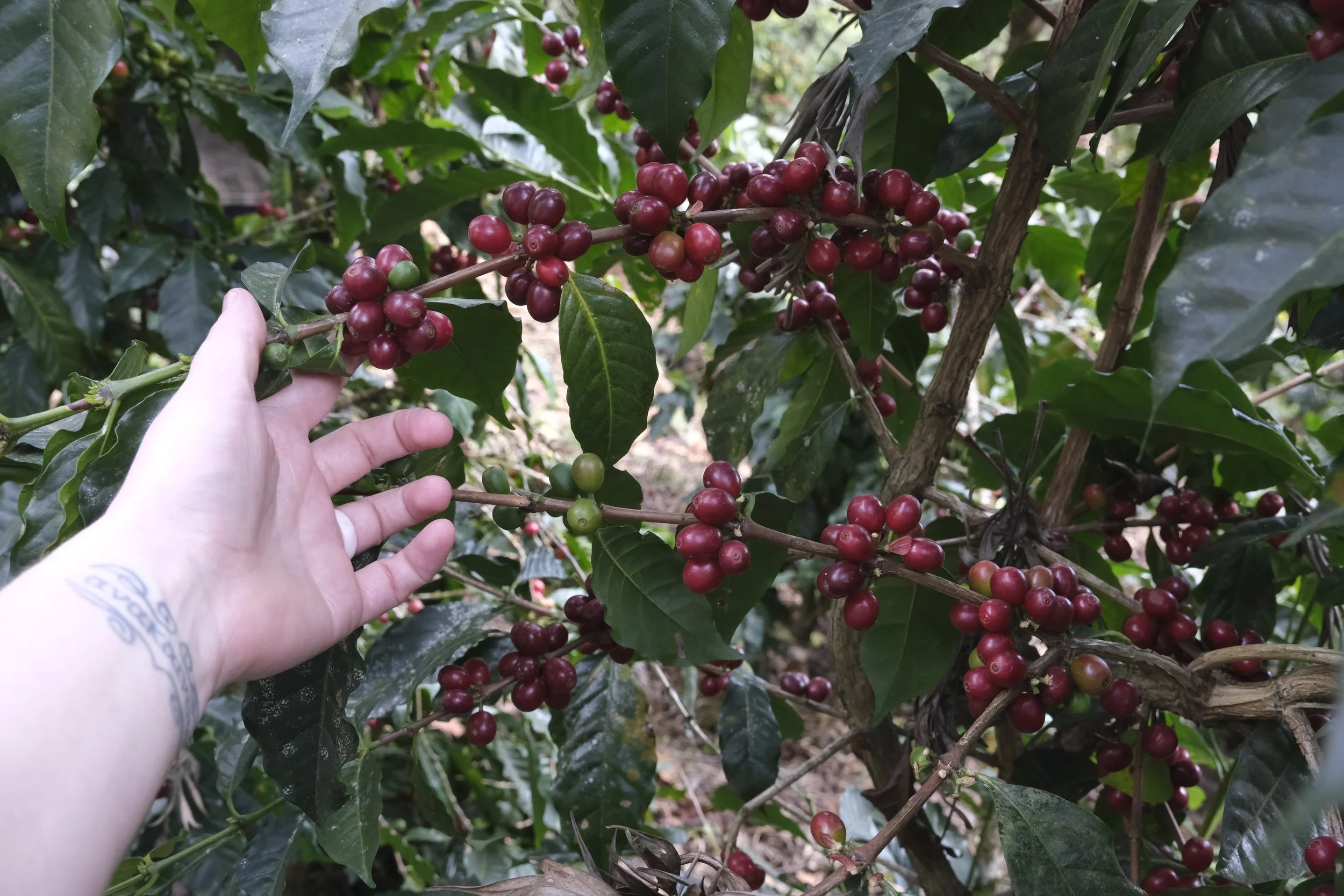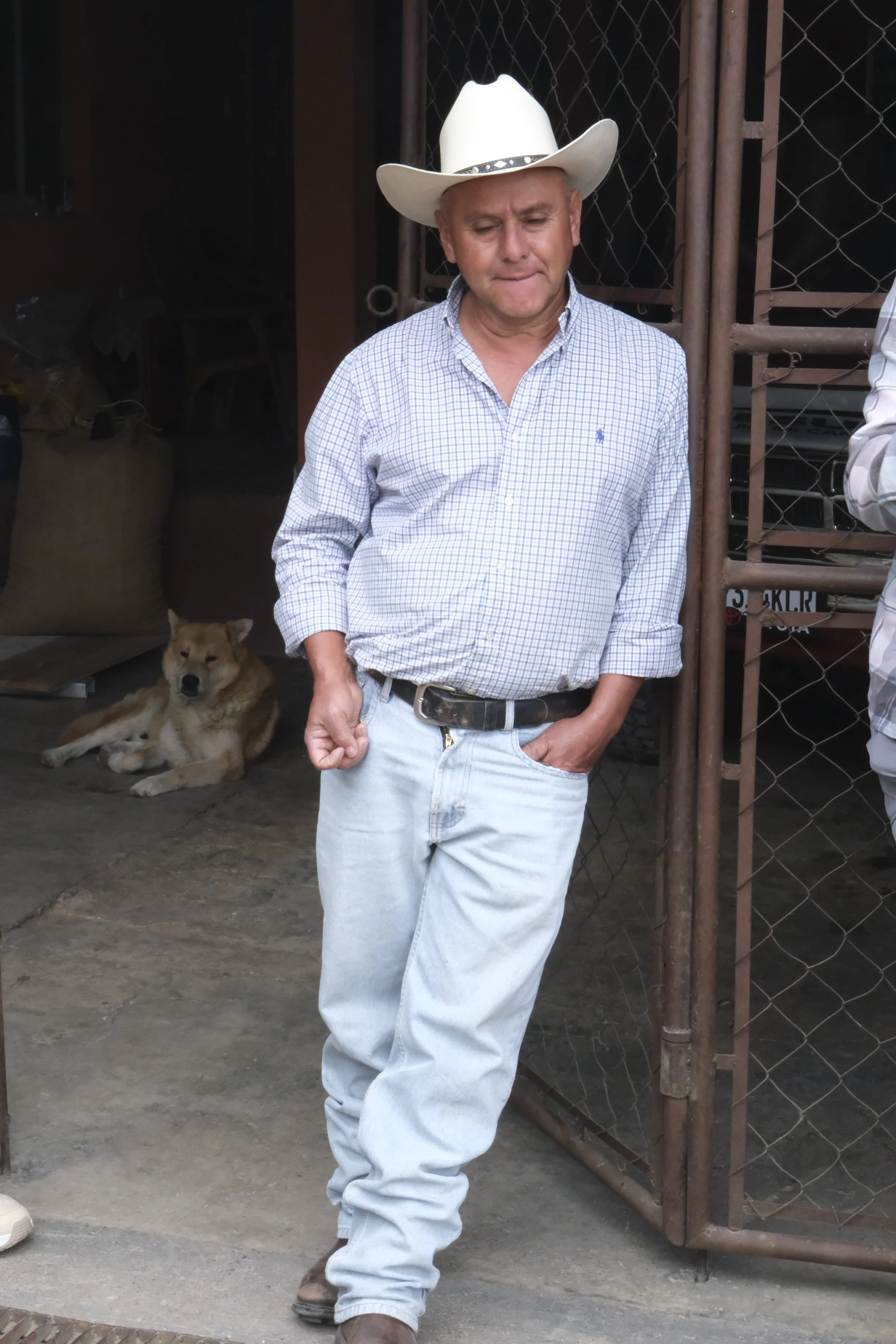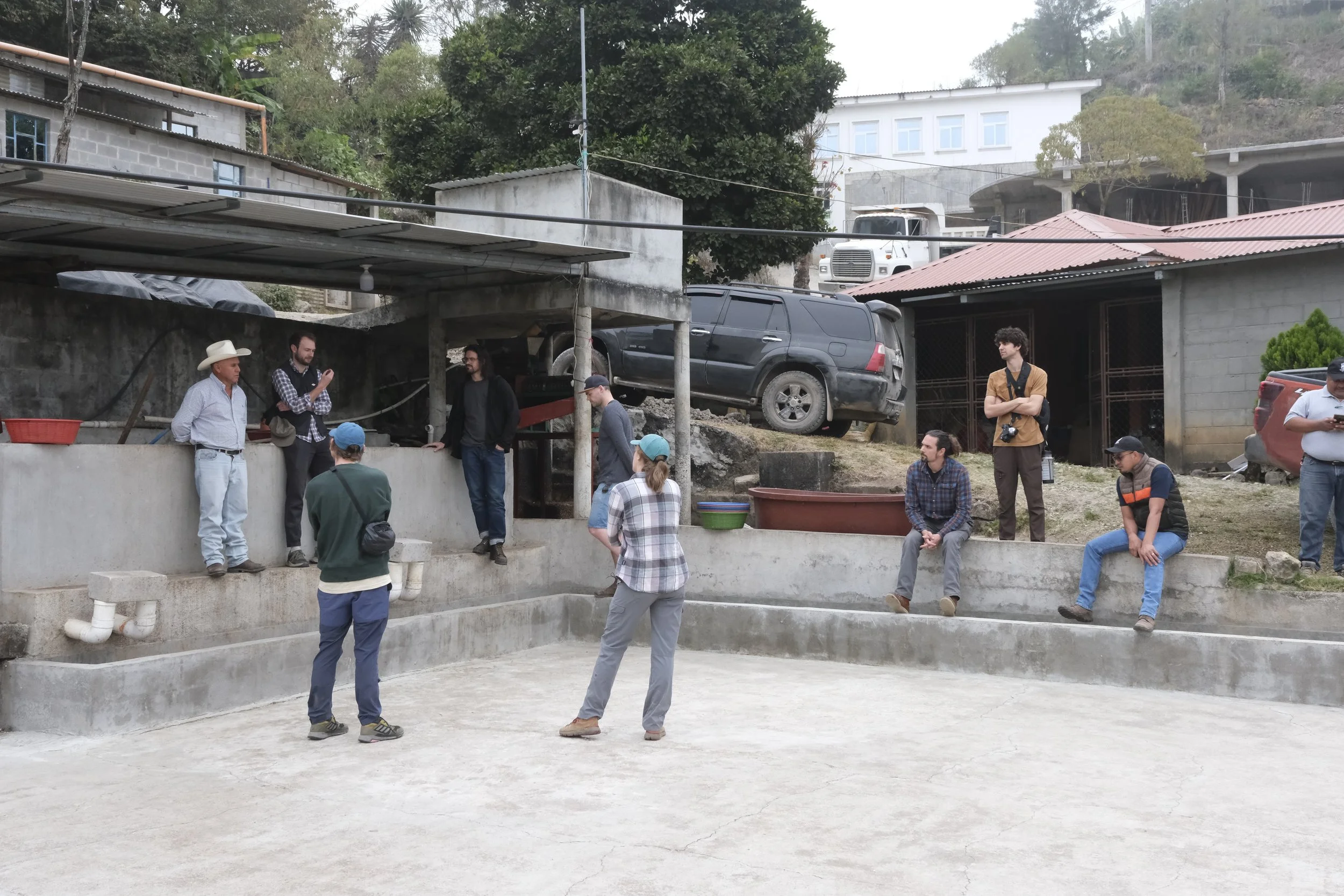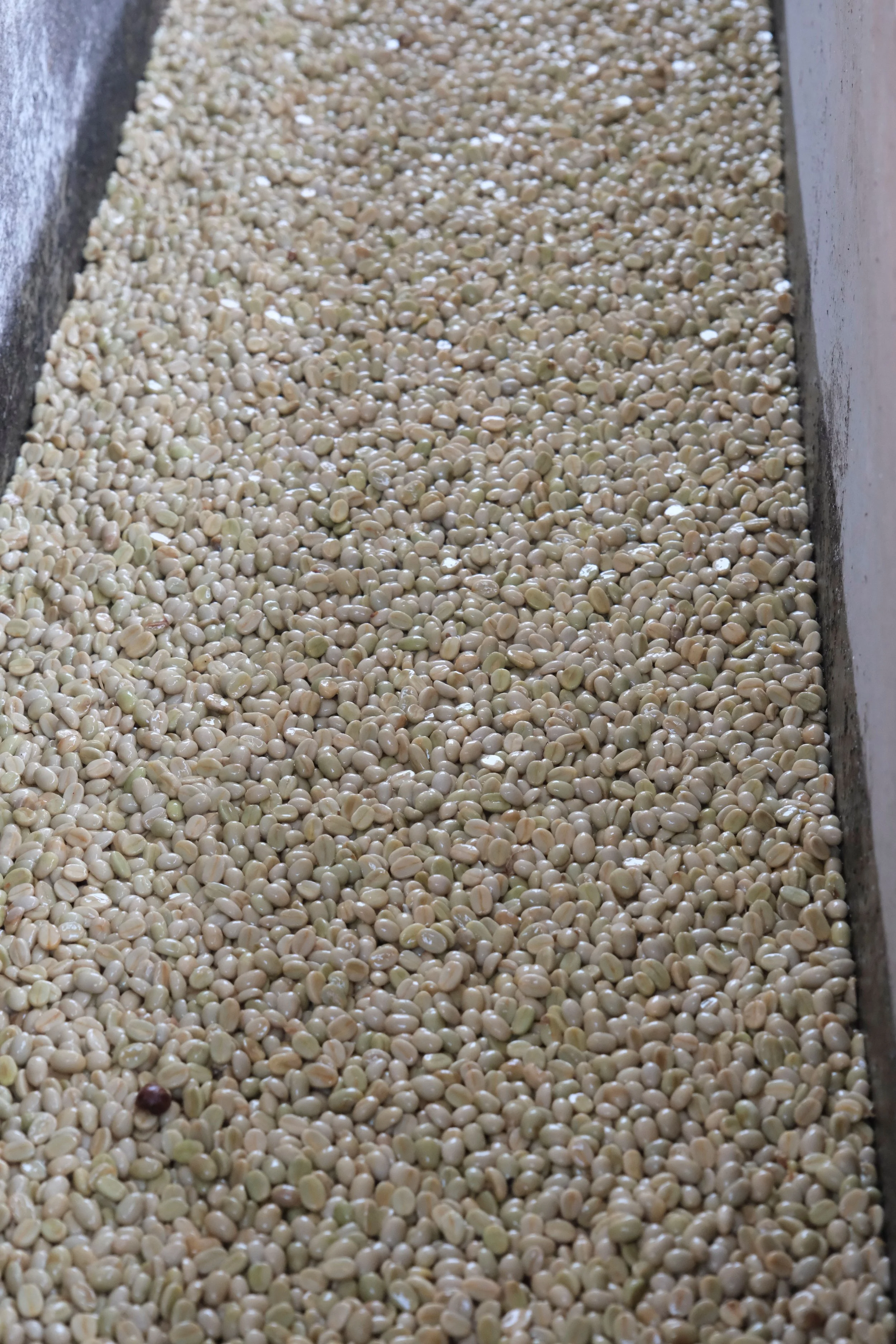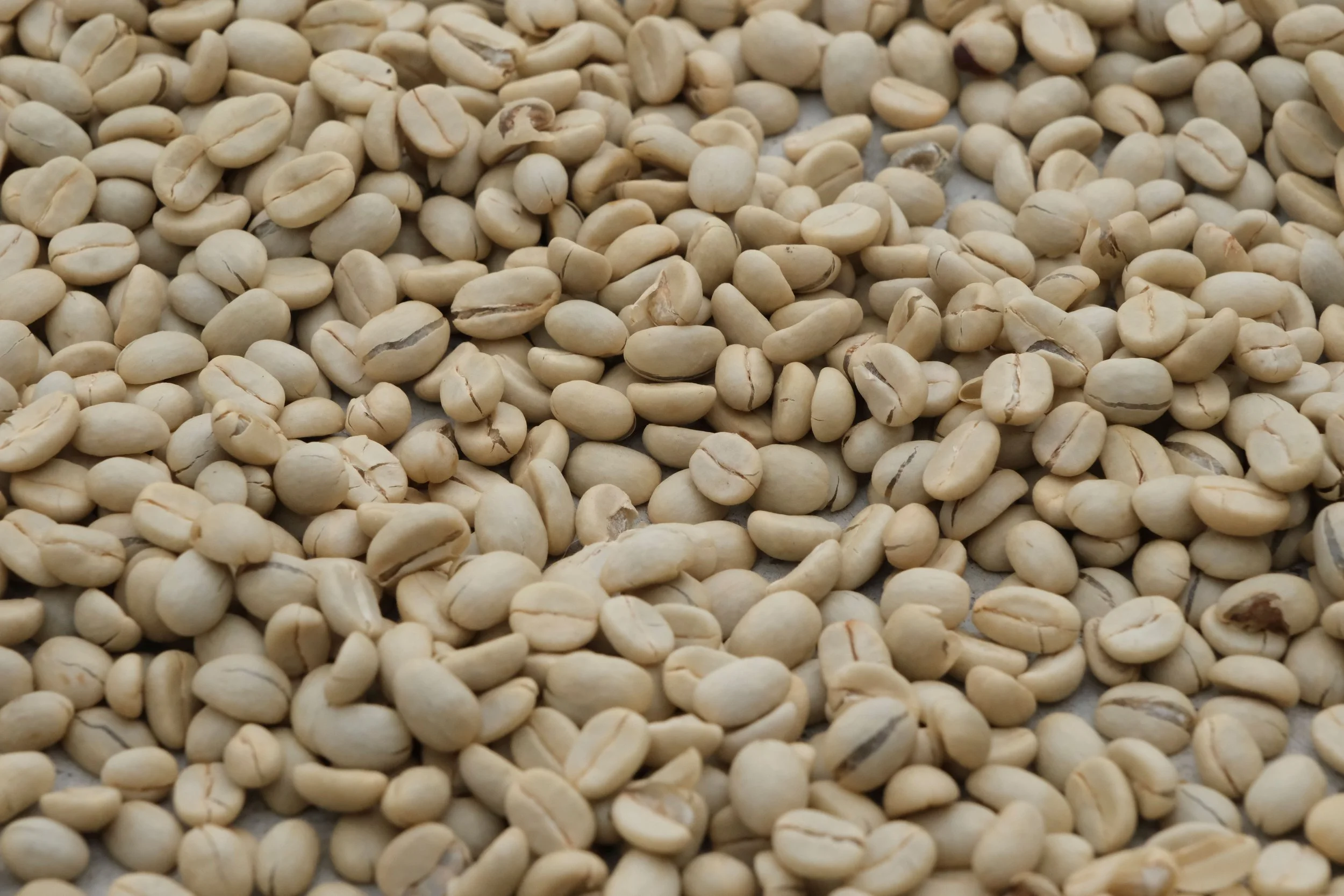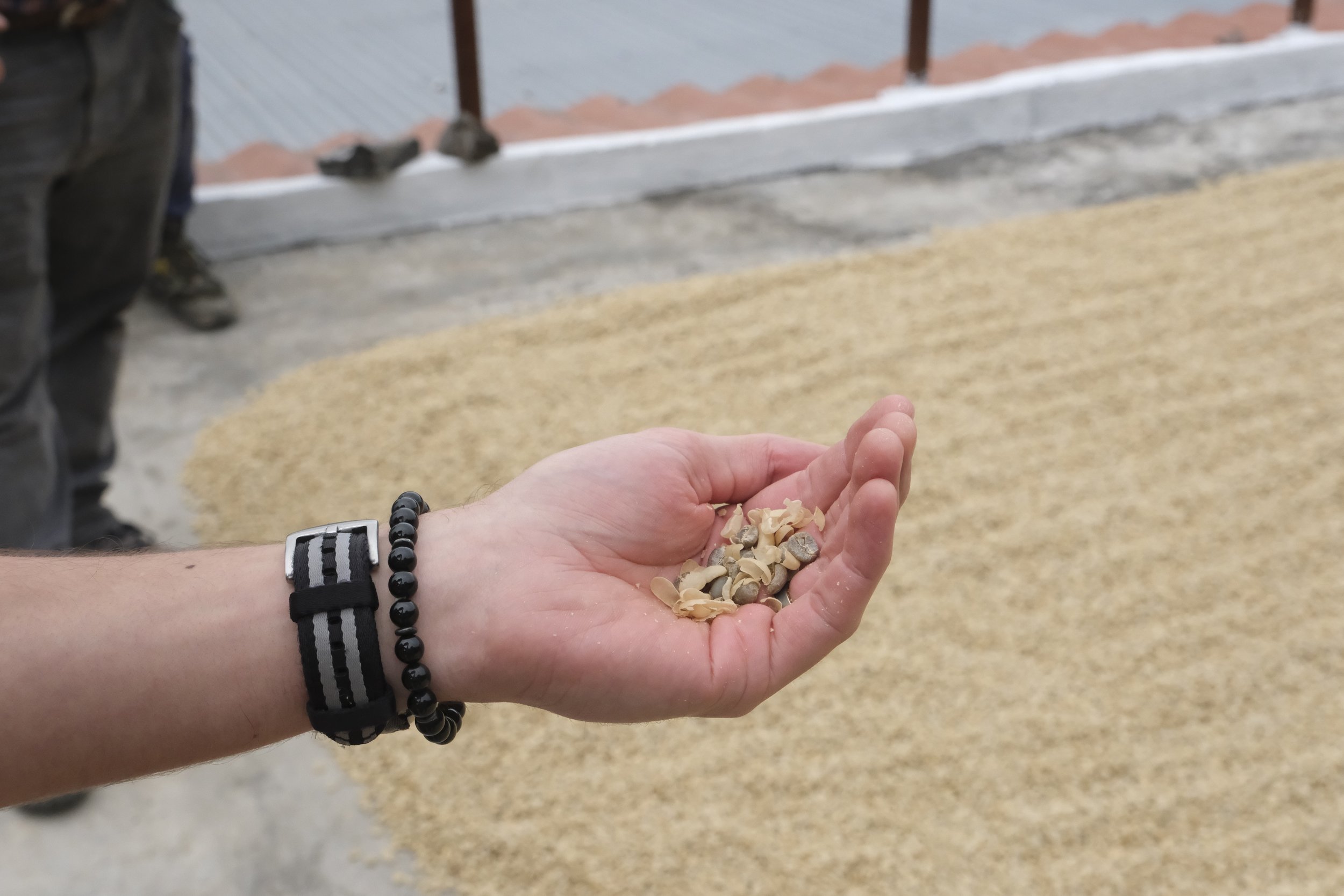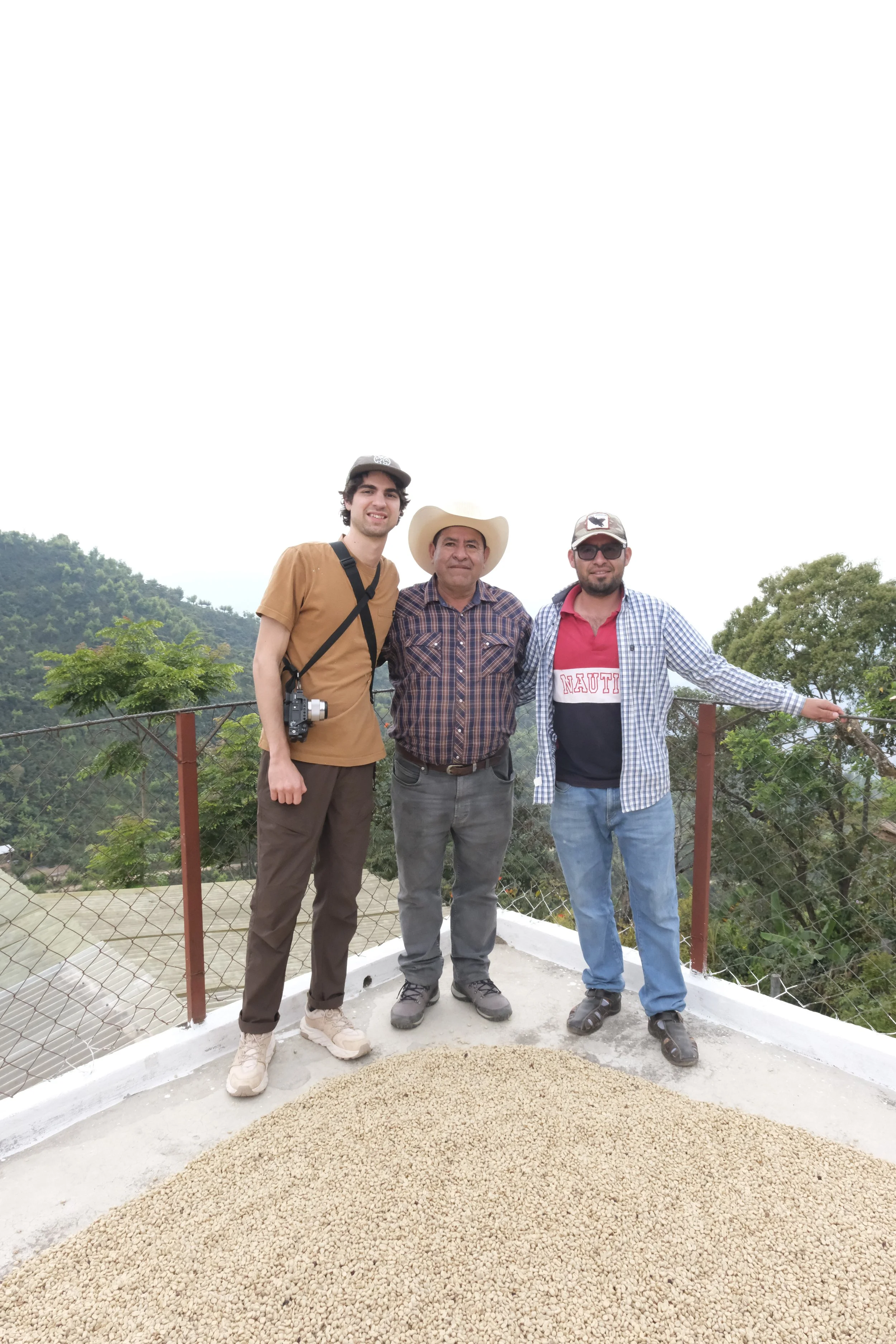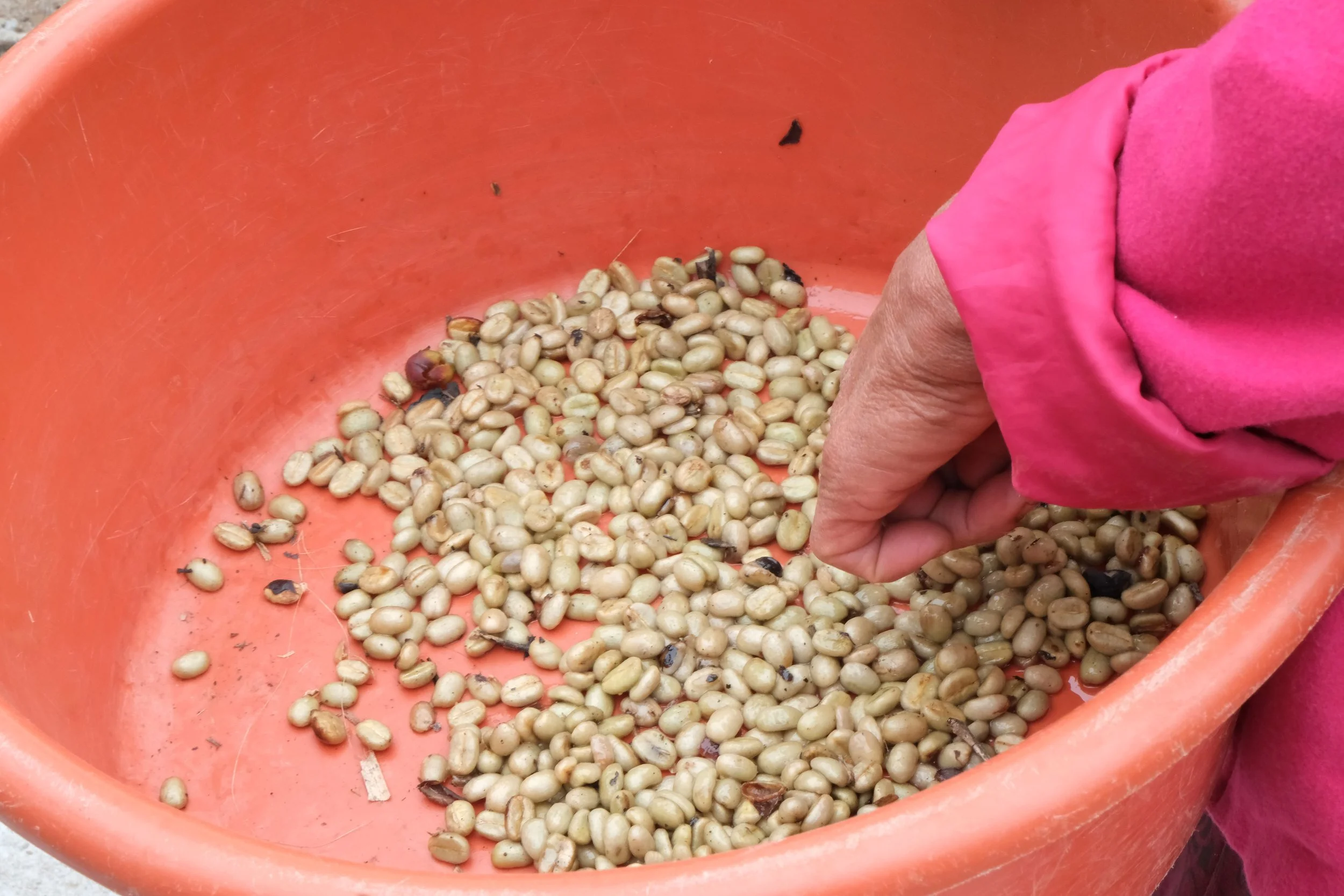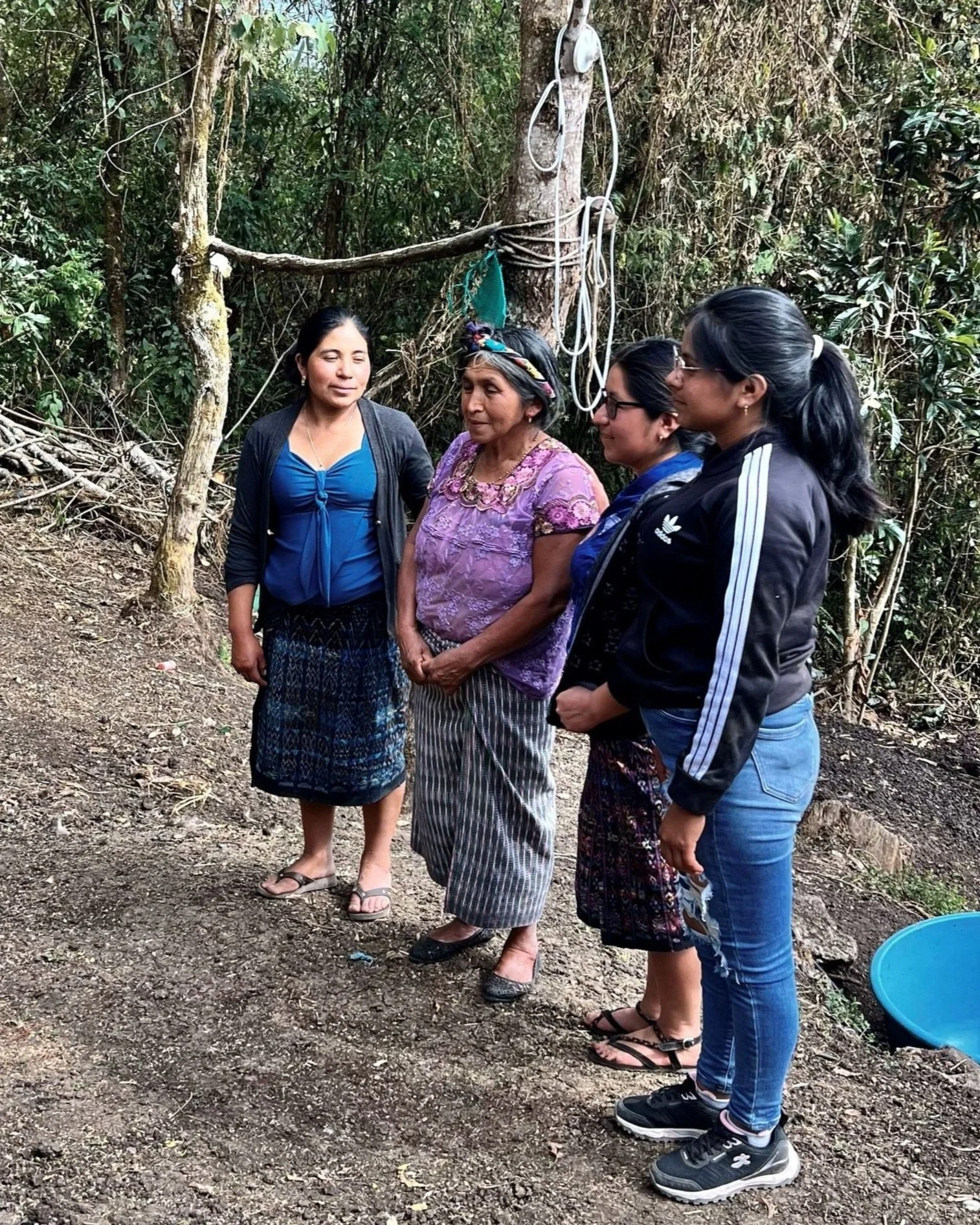Guatemala 2024
Primavera Origin Trip
Day 1
⚡
Jovemcafé
⚡
Finca La Gomez
⚡
Crispin Matias
⚡
Day 1 ⚡ Jovemcafé ⚡ Finca La Gomez ⚡ Crispin Matias ⚡
Finca La Gomez - Catarina Ramirez Mendez
They are building road down to her farm. She shared her excitement about being a “young entrepreneur” on the Jovemcafé team. She shares how she began growing coffee here years ago and also shared with us the pride but also difficulty of being primarily women-run at the farm. It was so incredible to see the Jovemcafé women speaking their native tongue “Popti” (Mayan language). They are full of joy, laughter and support of each other.
Crispin Matias - (Part of Primavera Family)
Says hard to find labor for pickers and harvest is a bit smaller due to climate. Had watermelon and bananas for us on patio. He also shed some light on how coffee drying can be a manipulated variable with the right infrastucture.
Day 2
⚡
Rudy Lopez Castillo
⚡
Fransisco Morales
⚡
José Lopez
⚡
Flora Ramos
⚡
ViCafé
⚡
Day 2 ⚡ Rudy Lopez Castillo ⚡ Fransisco Morales ⚡ José Lopez ⚡ Flora Ramos ⚡ ViCafé ⚡
Las Joyas - Rudy Lopez Castillo (Part of Primavera Family)
Near the region Chalúm, outside of Santa Ana. 23 people working for him. Challenges with labor prices (pickers) going up, costs in general going up. Narco traffic taxing and inflation. Harvest is lower this year… rained a lot then a little so not as much flowering. Wants to add another de-pulper and washing tank eventually. Los jolas
La Esperanza - Francisco Morales & Family (Part of Primavera Family)
La Esperanza - “The Hope”. Wet mill. Pickers kids have school for their kids to attend while the parents are picking. We processed coffee in the wet mill. Amazing home. Fransisco and his wife made us lunch.
Flora Ramos - (& Sister Carmelina - Sisters Son Frizzy)
Las Gemelas, which translates into ‘The Twins’. Water issue. Community only receives water every 8 days b/c of shortage. They’ve never had drinkable water. Discussing how to help. Her community is high in elevation, and getting pumped water is hard.
Day 3
⚡
El Mirador
⚡
Receiving Station
⚡
Day 3 ⚡ El Mirador ⚡ Receiving Station ⚡
El Mirador - Miguel Mendoza and Son, Eber
Shared with us how happy he is to work so closely with his sons, and wanted us to know how much hard work goes into every harvest. He also shared with us why good prices are so important to keeping up this work.
Finca El Mura - José Lopez (Part of Primavera Family)
Wet mill and farm. He was our driver for our stay in Huehuetenango.
Receiving Station - Josué Cano
Josue Cano - keeps track of receipts. Offer number + arrival number. Pay producer 70% at drop off and other 30% after final cuppings. Traceability. Number System.
Marked with R number and weight
Day 4
⚡
Dry Mill
⚡
Day 4 ⚡ Dry Mill ⚡
Primavera Dry Mill
Thursday, we traveled about an hour outside of Guatemala City to the La Central Mill. This is where Primavera mills and focuses on the quality control of green coffee. The dry mill currently runs off 35% solar power.
Dry mill manager: Santos Moran. The mill can hold 30,000 bags when full plus 10,000 on other side. Can process one container in about 2 days.
We Honey processed cherries from Antonio Gonzalez (fraijnes farm). The coffee cherries had to arrive within 12 hours of being picked. Depulped then 13 days out on raised drying beds. We processed 3 - 35 kilo bags. It was interesting to learn about the myth of what makes honeys yellow, red or black - it is actually usually decided by taste on cupping table.
Day 5
⚡
Cupping
⚡
Day 5 ⚡ Cupping ⚡
Cupping At La Central
About Green Sourcing and Primavera:
Aproximate Brazil production cost: $.75
Aproximate Guatemala production cost: $1.80
The Chain Collaborative Projects (ViCafé & Jovemcafé)
Co-creating opportunities in the coffee sector
The mission of The Chain Collaborative (TCC) is to co-create opportunities and strengthen capacities for community-led change in the coffee sector. They build relationships with local leaders in coffee-growing regions, cultivate their project design and management skills, and foster the development of their community enterprises for long-term sustainability. Most importantly, their work allows global communities to combat intergenerational poverty and marginalization in the coffee sector on their own terms, and according to their own visions for change.
After being accepted into the Community-Led Development Incubator, participants complete three program phases over the course of 18 months. The first phase is the Learning and Design Phase; the second, the Implementation Phase; and the third, the Peer Support Phase. These three phases allow participants to design a community-led development project, implement it with The Chain Collaborative funding and robust support, and report on its impact. Finally, participants are able to join an ongoing TCC-led alumni network of change-makers in the coffee sector. This work allows global communities to combat intergenerational poverty and marginalization in the coffee sector on their own terms, and according to their own visions for change.
The Chain Collaborative’s Incubation Project is a finalist for the 2024 SCA Sustainability Awards
“Jovemcafé and myself
have felt recognized through this
experience, like our work matters
and is reaching other countries. We
feel more motivated to participate
and work together.”
A few of Jovemcafés young entrepreneurs
Jovemcafé Incubator Project - Egg-laying Hens and Shade Tree Nursery
Jovem stands for Young entrepreneurs. See @thechaincollaborative
Jovemcafé is a group of 25 young coffee entrepreneurs from the community of Jacaltenango, Guatemala. The group was founded in 2017 with the vision to support each other as entrepreneurs and sell their coffee for a better price. They also work to support their members through a range of projects, including credit provision and training in finance and market access.
Jovemcafé has partnered with TCC to develop two projects aimed at helping the group achieve financial stability and job creation in the community. The first project will see the establishment of an egg-selling business to generate income and allow group members to save and reinvest their profits. They recently built enclosures for 300 Highland Red hens. Additionally, the hen waste will be used as organic fertilizer in the second project: a nursery with 10,000 timber and fruit trees that they expect to develop to make seedling sales to local producers, and distribution among their own members. So far, a number of women within the group formed a task force to take leadership on launching and managing the hen project. Paula explains that by including the full group in the planning process, new leaders have emerged to take on more ownership and responsibility over the initiative; this is distinct from previous projects.
This is the first time Jovemcafé has engaged in a large-scale project with external funding, and the Incubator has provided its members with the tools they need to carry out current and future ventures, including knowledge on how to create a budget and how to design and monitor their project. The Incubator has helped them connect with other groups with similar projects.
They have already shared knowledge on seed purchasing, hen rearing, and the basics of starting a community library with other participants.
Jovemcafé's members are highly accountable to each other due to their shared commitment to their savings and loans fund. Prior to the Incubator, they were already meeting weekly. Paula shares that through the Incubator, however, they have been able to hear new ideas from group members and expand their vision for change.
Paula, Jovemcafé's representative, expresses that thanks to her participation in the Incubator, she feels more confident expressing her ideas, leading community meetings, and engaging with new partners. In the future, Jovemcafé plans to build water pumps in their community to fight the consequences of limited water access due to climate change. To Jovemcafé, success would be for its members to be able to save enough money to buy land and give their children a better future. Their 5-10 year plan includes building ways to help the youth in their community continue their education.
ViCafé Incubator Project (Nursery’s & Soil “Worm Project”)
ViCafé is a youth-led cooperative in San Antonio Huista, Guatemala committed to improving the commercialization of their community’s coffee, creating local career opportunities for youth, and demonstrating the potential of youth-led coffee production in their region and beyond.
Nursery
Growing: coffee plants, cypress, chalum, pine trees, sabino, egravelaia, torialina, ailso. Chalum is main shade tree for coffee farms. Would like to plant macadamia trees but haven’t gotten then seeds yet.
ViCafé's project has two main components. First, they’re establishing a nursery to grow and sell fruit, timber, and coffee trees locally. Nearby access to these trees will improve the quality of their coffee
long-term through soil enrichment, and contribute to reforestation in the area. The second element of their project focuses on the creation of organic fertilizer. In the same location as the nursery, they will be setting up a compost system to process organic material, primarily coffee pulp, and create a nutrient-rich fertilizer that can be used to improve soils and the production of coffee plants. By launching these projects, ViCafé is at once improving farmers’ production processes, lowering their input costs, and generating additional income for their cooperative.
